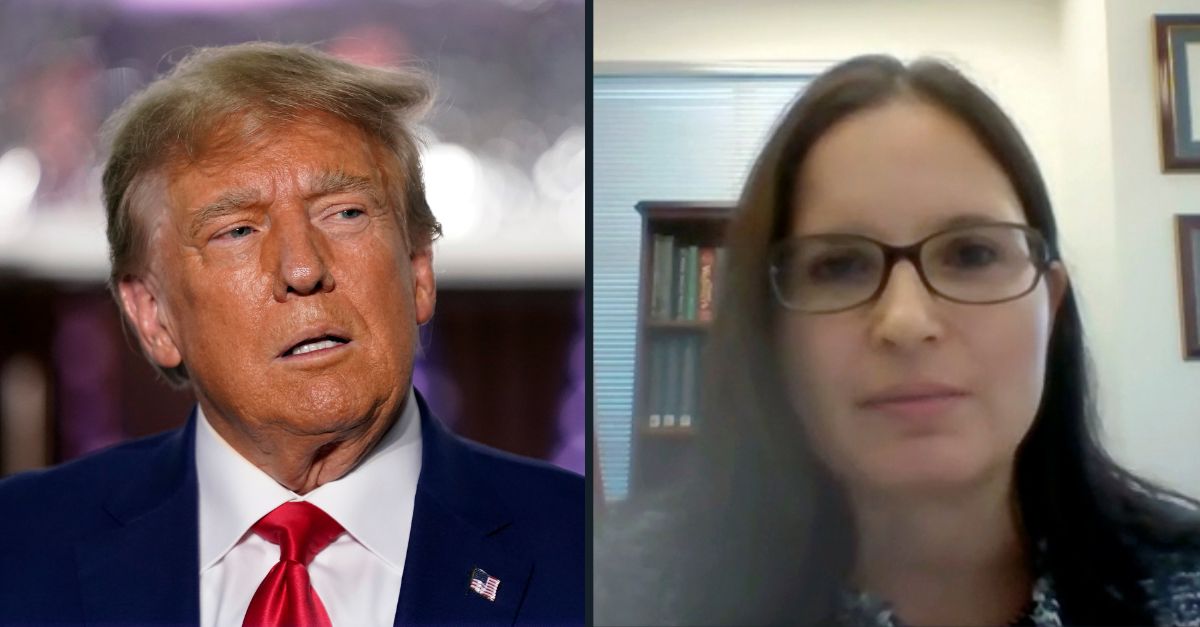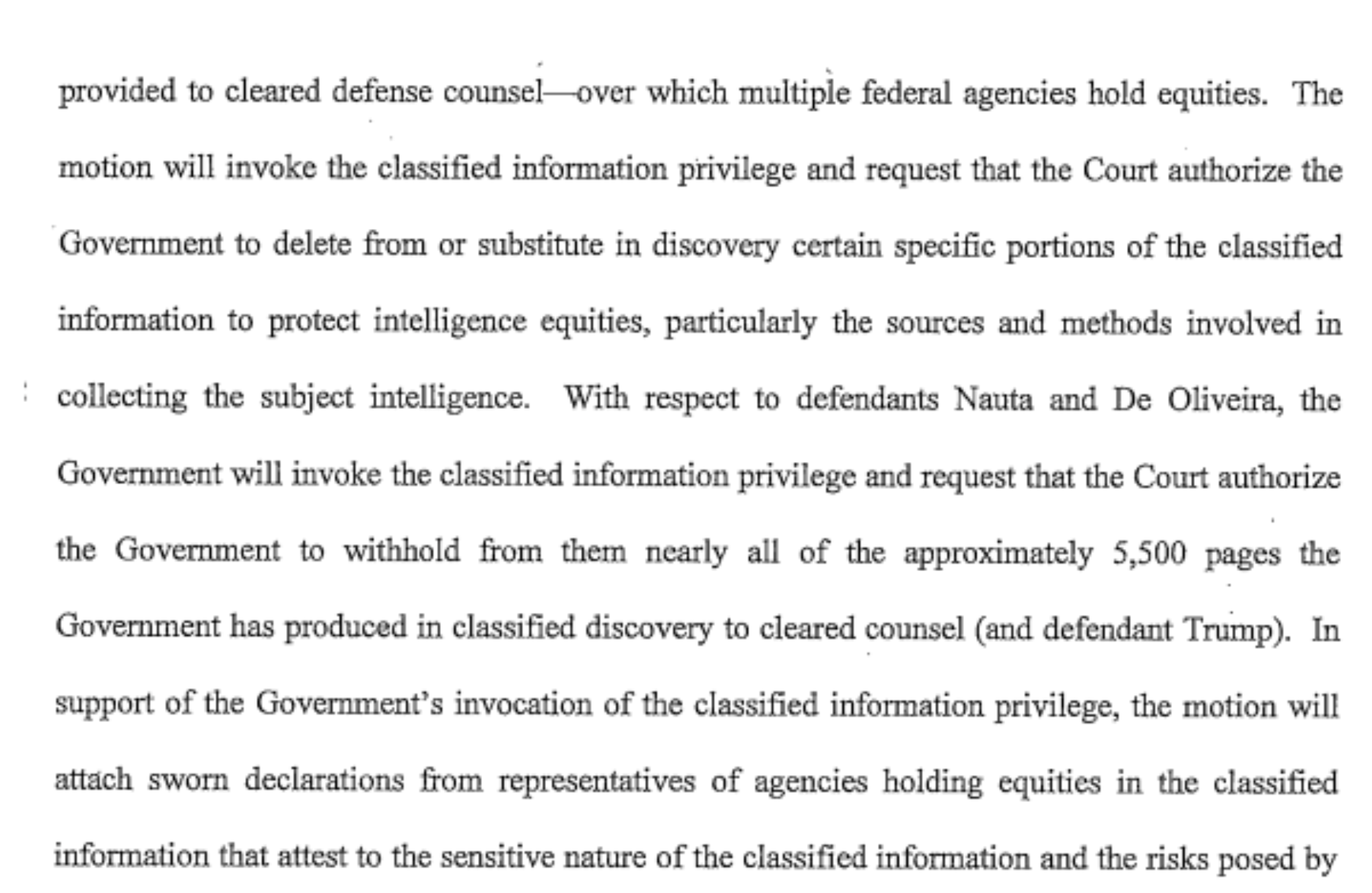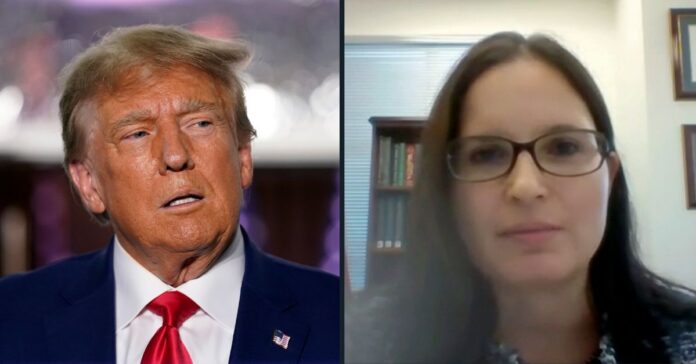
Former President Donald Trump (left) speaks at Trump National Golf Club on June 13, 2023 (AP Photo/Andrew Harnik, File), (right) Judge Aileen M. Cannon speaks remotely during a Senate Judiciary Committee nomination hearing on July 29, 2020. (U.S. Senate via AP)
The U.S. district judge presiding over Donald Trump’s Mar-a-Lago prosecution ordered the unsealing of several documents, shedding light on special counsel Jack Smith’s concerns about revealing the “contours and extent” of the government’s plans to delete classified information from shareable discovery.
In a brief paperless order, Judge Aileen Cannon, “mindful of the strong presumption in favor of public access to judicial documents,” ordered the unsealing early Monday. Hours later, documents that were filed by the Special Counsel’s Office on Nov. 22, among others, went public.
On Nov. 22, Smith sought permission to file an ex parte motion (for the judge’s eyes only) to exceed page limits and a motion to file that motion under seal.
Smith noted that his motion to exceed page limits related to the government’s “forthcoming CIPA Section 4 motion, which will include highly sensitive classified information,” and “provides sensitive information about the contents of the CIPA Section 4 motion.” Smith proposed filing one larger motion in the interest of “judicial economy” — instead of multiple shorter motions — to “protect four separate categories of classified information from disclosure” to criminal defense lawyers, and to Trump and his co-defendants, valet Walt Nauta and Mar-a-Lago property manager Carlos De Oliveira.

In support of his request, the special counsel expressed concerns that “even disclosing” the “number of categories of classified information that the Government seeks to delete from discovery would reveal the contours and extent of the Government’s CIPA Section 4 motion.”

Prosecutor Jack Smith pictured at The Hague, Netherlands, on Nov. 10, 2020. Smith (AP Photo/Peter Dejong, Pool)
Cannon, a Trump appointee, ultimately rejected Smith’s procedural motions.
While §4 of the Classified Information Procedure Act or CIPA says that a judge, “upon a sufficient showing, may authorize the United States to delete specified items of classified information from documents to be made available to the defendant through discovery under the Federal Rules of Criminal Procedure, to substitute a summary of the information for such classified documents, or to substitute a statement admitting relevant facts that the classified information would tend to prove,” Cannon determined on Nov. 28 that Smith “has not provided a sufficient justification to warrant filing either Motion on an ex parte basis” because the motions were not themselves §4 motions and they do not “contain or otherwise reveal classified information.”
“Moreover,” the judge wrote, “although the Special Counsel suggests that the mere filing of its motion for additional pages might ‘reveal the contours and extent of the Government’s CIPA Section 4 motion,’ because it indicates that ‘four categories of especially sensitive classified information’ will be addressed in the Section 4 motion, that bare reference, without more, is not a basis to deviate from the presumption against ex parte filings in our adversarial system of justice.”
On Dec. 1, Smith followed up by saying the government and the defense spoke about unsealing several documents on the docket and that the special counsel did not oppose the filings going public, except for two of them that needed “limited redactions.”
“The defendants did not oppose the Government’s request, but reserved the right to challenge them later,” Smith wrote, before providing an explanation as to why he sought to file ex parte in the first place.
“The Government sought to file its motion ex parte because it was ancillary to an ex parte proceeding, and it would have revealed to defense counsel information, albeit unclassified, about the contours of the Government’s planned CIPA Section 4 motion,” Smith said. “This is the same information that the Government proposed redacting.”
“Because the Court rejected that position and ordered the Government to provide unreacted versions of the two docket entries to defense counsel, there is no justification for keeping them from the public,” the special counsel conceded. “Accordingly, the Government does not object to ECF Nos. 223 and 224 from being unsealed in full.”
Read the unsealed Nov. 22 special counsel filings here and here, the judge’s Nov. 28 order, and the special counsel’s Dec. 1 response.
Have a tip we should know? [email protected]

